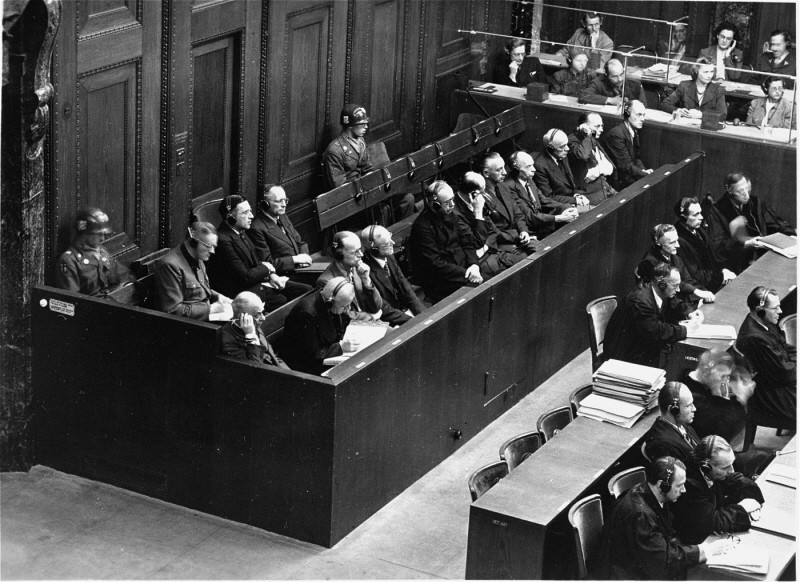
Subsequent Nuremberg Proceedings, Case #3: The Justice Case
After World War II ended, the Allies established courts in each of their occupied zones in Germany to prosecute German officials for their role in the commission of war crimes, crimes against peace, and crimes against humanity. American military tribunals in Nuremberg, Germany, presided over 12 major proceedings against leading German industrialists, military figures, SS perpetrators, and others. Included among these Subsequent Nuremberg Trials was the Justice Case.
United States v. Josef Altstoetter, et al.
On February 13, 1947, the US Military Government for Germany created Military Tribunal III to try the Justice Case, the third of the Subsequent Nuremberg Proceedings.
Of the sixteen defendants indicted on January 4, nine were officials in the Reich Ministry of Justice, while the others were members of the People's and Special Courts. The defendants were arraigned on February 17, all pleading not guilty to the charges against them.
The indictment listed four counts, with all the defendants charged with the first three:
- conspiracy to commit war crimes and crimes against humanity
- war crimes against civilians of territories occupied by Germany and against soldiers of countries at war with Germany
- crimes against humanity, against German civilians and nationals of occupied territories
The fourth count of the indictment charged seven of the defendants with membership in the SS, SD, or the leadership corps of the Nazi Party, all of which had been declared criminal organizations a year before by the International Military Tribunal.
The prosecutors charged the defendants with "judicial murder and other atrocities, which they committed by destroying law and justice in Germany, and then utilizing the emptied forms of legal process for the persecution, enslavement and extermination on a large scale". The trial opened on March 5 and the final statements of the defendants were heard on October 18.
Military Tribunal III returned its judgment on December 3 and 4, finding ten of the defendants guilty and acquitting four. Two defendants were not included in the judgment as one died before the trial began and the case of the other was declared a mistrial because he had been too sick to attend much of the trial. The court announced its sentences on December 4, sending four of the guilty defendants to prison for life and six to prison for terms ranging between five and ten years.
Critical Thinking Questions
Beyond the verdicts, what impact can trials have?
How were various professions including the judiciary involved in implementing Nazi policies and ideology? What lessons can be considered for contemporary professionals?
How have some professional codes of conduct changed following the Holocaust?
Is it ever too late for accountability?

